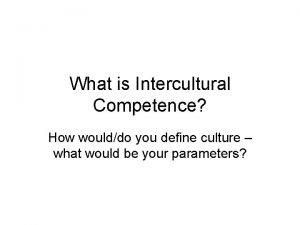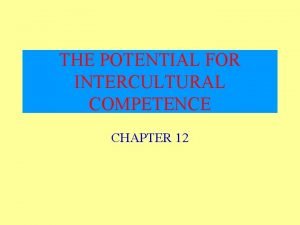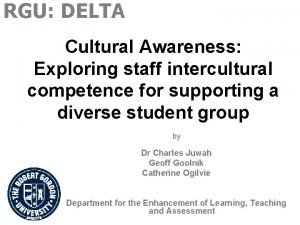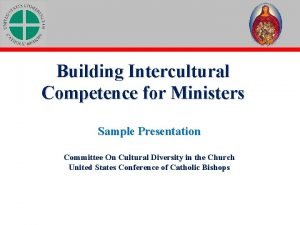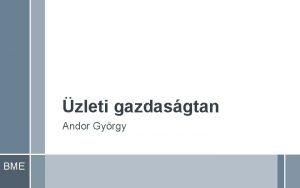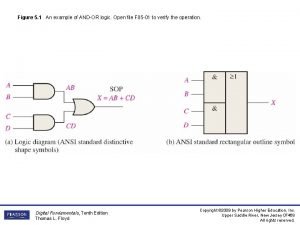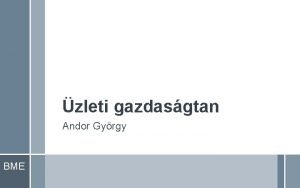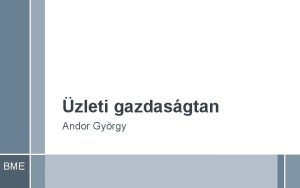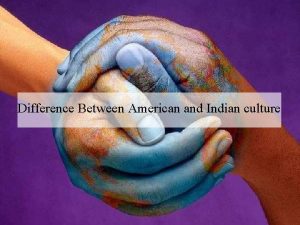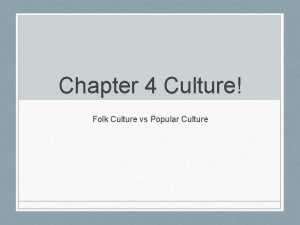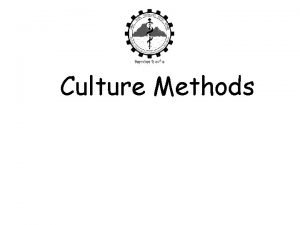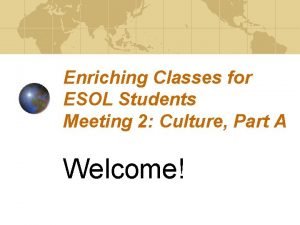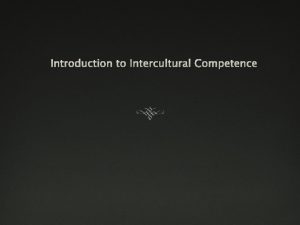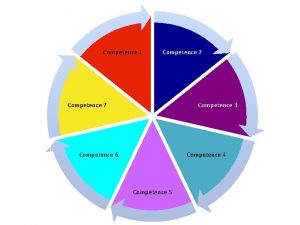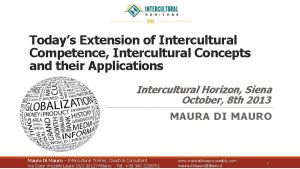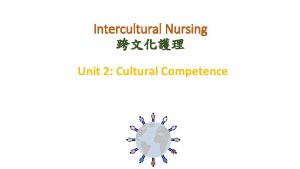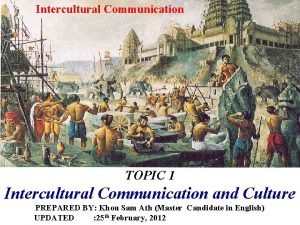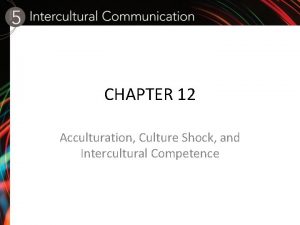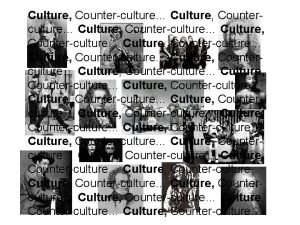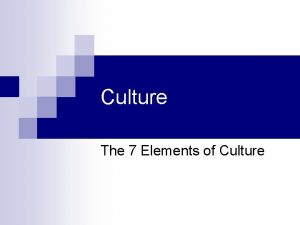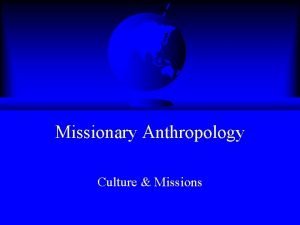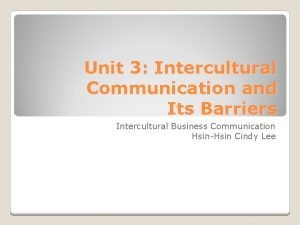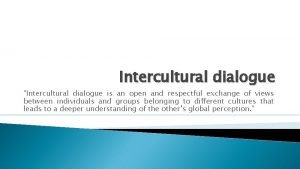Teaching culture andor intercultural competence principles and applications





























- Slides: 29

Teaching culture and/or intercultural competence – principles and applications Michael Byram m. s. byram@dur. ac. uk

Overview • A personal view - ‘aims and objectives’ – ‘Competences not culture’ • Two examples – An example for upper secondary school – An example for primary school → ‘making the strange familiar and the familiar strange’ • Methodological principles • Local applications

‘Aims’ for ‘foreign’ language education • Functional BUT also humanistic – Bildung und politische Bildung – www. coe. int/lang → Platform of resources→Foreign languages: modern and classical • Special case of English – as Lingua franca – ‘basic skill’ – functional – as ‘Foreign language’ – humanistic and functional • Implications for curriculum design e. g. primary school: lingua franca; secondary school: foreign language

Culture and/or competences? • Wanting to define ‘culture’ • Wanting to define ‘national culture’ • Wanting to define link between language and culture • Metaphors – iceberg, onion – ‘surface’ / ‘deep’


• The iceberg metaphor • Culture as ‘things’ …. and as ‘rules’ • ‘culture is a verb’ – i. e. what people do (inc. ‘doing’ language)

An alternative – Heathcote’s Five questions: actions and values • • • What are you doing? What is your motive in doing that? What makes it an important thing to do? Where did you learn that such things must be done? Why is this important? Personal values • I am telephoning my sister. • Because it's her birthday. • I always phone her on her birthday. • We've always remembered important dates in our family. • Celebrations keep the family together.

…. actions and values Social values • I am writing a card to my friends in Australia. • Because it's New Year. • I always write to my friends at New Year. • I remember we always got cards from my parents’ friends when I was little. • It's important to keep contact with people even when they're far away. • Based on: Heathcoate, D. and Bolton, G. 1998, Teaching culture through drama. In Byram and Fleming Language Learning in Intercultural Perspective Cambridge: CUP

• Instead of only ‘culture’ / knowledge • Focus on competences (doable in FL classroom)

An example for (upper) secondary from Developing Intercultural Competence in Practice Byram, Nichols, Stevens (eds) 2001 Clevedon: Multilingual Matters

BRITISH AND BULGARIAN CHRISTMAS CARDS: A RESEARCH PROJECT FOR STUDENTS Krassimira Topuzova (Bulgaria) - 1998 Aims were: • show whether Bulgarian Christmas tradition has changed – after 1990 • compare with British tradition and introduce other cultural issues • 'research': analysing data, form concepts, draw conclusions.

Organization of the project • Before lessons start -- each student to go to a shop and buy one Christmas card they'd like to post for Christmas. • -- in shop, observe: who buys cards - age, sex, nationality - how many do they buy - which cards sell more and which less? • -- school, exhibited cards and explained why he/she had bought a particular card: price, size or colour OR images and messages.

In the classroom: -- groups of 5/6 in order to analyse the cards. • WHO BUYS CHRISTMAS CARDS? – 1. What age, sex, occupation are they? – 2. Are they local people or tourists? – 3. How many cards do they buy? • WHAT CHRISTMAS CARDS? – 1. What size and format are they? – 2. What images are included? – 3. Who printed them? etc • WHY BUY CHRISTMAS CARDS? – – 1. What do Christmas cards mean to Bulgarians? 2. Why do they buy them? 3. Who do they send them to? 4. What do they write on them? (OR – Heathcote’s 5 questions)

Second stage: classification cards into types, according to the images and messages - following types emerged: • Traditional Bulgarian Christmas cards - illustrating the traditional Christmas table • Religious Christmas cards with Biblical images - new development -- official rejection of church before the changes. • Children's cards - e. g. children making snowmen, playing with snowballs • • Winter-landscape cards -snowy woods or fields • Christmas-tree decorations - typical Bulgarian cards traditional decorations

• Third stage: discussion of the cultural implications: traditional Bulgarian Christmas cards haven't changed; recently introduced innovations, e. g. UNICEF cards with 'Merry Christmas' in English • Comparisons -- distribute British cards to groups: analyse as before four types: religious cards, winter-season cards, children's cards, Christmas decorations. • -- comparative analysis of the Bulgarian and British Christmas cards; make two columns: for differences and for similarities; summarise the findings. • most striking difference: information on cards: what charity and what material made of

Comment • The students found it difficult to accept the idea of buying Christmas cards to support a charity. • This is a very interesting point of cultural difference that the students raised. The concept of charity didn't exist in our culture before 1989. Under communist rule people were 'ideally' equal - we got equal wages, we had equal rights and obligations. There were literally no starving people. It was a 'classless' society, people had their bread and homes without fear of losing them. We went to the same shops, selling nearly the same things at the same price. • Now, ten years later, the concept of charity has emerged with a clear shape and meaning. The 'classless society' has practically become non-existent. Instead, two distinct classes have formed - those of the rich and the poor. Homeless and unemployed people started to appear. • At the same time, the first charity organizations appeared, usually founded and sponsored by people with money and power. (…. )

Comment • At this point we had a discussion on British charities, their role and value in society. The students learned about some of the well-known British charities - the Samaritans, the Salvation Army, Oxfam, etc. • They were surprised to find out that these charities got their funds from public donations, not from state or private businesses as is the case in Bulgaria. • They explained this by reference to the centralised social service system in our country which is still surviving, though quite neglected by the state due to its financial and economic crisis. • However, they came to the conclusion that the charities in Bulgaria would develop in very much the same way as West European charities because of the guidance they received from them, and the expertise they followed in organization and activities.

The example and the competences • Knowledge about: Christmas cards in England Bulgaria; recycling; recent history in Bulgaria; the role of charity in capitalist welfare states (and others) • Knowledge (savoirs): of social groups and their products and practices in one’s own and in one’s interlocutor’s country, and of the general processes of societal and individual interaction

• Relating/comparing: English and Bulgarian symbols of Christmas; English and Bulgarian concepts of charity • Skills of interpreting and relating (savoir comprendre): ability to interpret a document or event from another culture, to explain it and relate it to documents or events from one’s own

• Discovering social practices in Bulgaria (and England) connected with Christmas by investigating/observing/collecting data, categorising data i. e. being scientists • Skills of discovery and interaction (savoir apprendre/faire): ability to acquire new knowledge of a culture and cultural practices and the ability to operate knowledge, attitudes and skills under the constraints of real-time communication and interaction

• Becoming curious about Britain AND the recent history of Bulgaria, thinking about the future. Realising that Bulgarian society has not been always ‘like this’. • Attitudes (savoir être) curiosity and openness, readiness to suspend disbelief about other cultures and belief about one’s own.

• Evaluating the change in Bulgarian society since the change from communism – the advantages and disadvantages. • Critical cultural awareness (savoir s'engager): an ability to evaluate, critically and on the basis of explicit criteria, perspectives, practices and products in one’s own and other cultures and countries • And communicative competence – CLIL

Intercultural Communicative Competence Linguistic comp. Sociolinguistic comp. Discourse comp. Intercultural Competence skills of interpreting/relating (savoir comprendre) Knowledge (savoirs) Critical cultural awareness (savoir s’engager) Openness/curiosity Savoir être Skills of discovery/interaction (savoir apprendre/faire)

An invented example for primary school English National Curriculum - Year 5 • IU 5. Compare symbols, objects or products which represent their own culture with those of another country – Learn about symbols representing their own country, culture and community Learn about symbols and products from another country and culture • IU 5. 1 Look at further aspects of their everyday lives from the perspective of someone from another country – Consider aspects of everyday life of children in their own and different countries Reflect on cultural issues using empathy and imagination to understand other people's experiences

‘Christmas card’ • Produce a Christmas card (in L 1) → 5 questions – in L 1 lesson(? ) • Examine several cards and list the pictures • Read a French Christmas AND New Year card • Examine several cards and compare the pictures with British pictures

Methodological principles • Collect/produce and analyse data (or use already collected data) • Compare – data from ‘us’ with ‘them’ – Beware comparison as ‘better/worse’ – Comparison is ‘putting side by side’ • Learn about – from teacher or other source (But beware ‘show and tell’ – analysis is better) • ‘Reflect’ – use ‘other/new’ as mirror to ‘our/old’ – Think critically/analytically about ‘other and our’

Local applications • Sich in Personen mit anderen sozialen und kulturellen Hintergrunden hineinversetzen und die Welt aus deren Perspektive betrachten • Analyse, compare, see ‘our’ Schulsysteme/ Feiertage from ‘their’ perspective What is ‘missing’/ ‘extra’? (reflect = mirror) Why? (reflect = think critically) →

• Die eigene Lebenswelt nicht absolut setzen, sondern sie als eine von vielen möglichen “normalen” und “richtigen” Formen der Lebensgestaltung begreifen • Care with relativism! – Are all behaviours justified “because it is their culture”? – The role of the teacher….

No conclusion…. Over to you…. Thankyou…
 Constituent elements of intercultural competence
Constituent elements of intercultural competence Define intercultural competence
Define intercultural competence Behavioral assessment scale for intercultural competence
Behavioral assessment scale for intercultural competence Intercultural competence
Intercultural competence Building intercultural competence for ministers
Building intercultural competence for ministers Andor györgy
Andor györgy How are the inner and outer planets alike?
How are the inner and outer planets alike? Andor logic
Andor logic Andor györgy üzleti gazdaságtan
Andor györgy üzleti gazdaságtan Levophenol
Levophenol Andor györgy üzleti gazdaságtan
Andor györgy üzleti gazdaságtan Andor györgy üzleti gazdaságtan
Andor györgy üzleti gazdaságtan Andor insert
Andor insert Python jumpstart
Python jumpstart Andor matlab
Andor matlab Scaled down teaching
Scaled down teaching Examples of non material culture
Examples of non material culture Fed-batch
Fed-batch Difference between american culture and indian culture
Difference between american culture and indian culture Stab culture and stroke culture
Stab culture and stroke culture Folk culture and popular culture venn diagram
Folk culture and popular culture venn diagram Popular culture examples
Popular culture examples Anaerobic media
Anaerobic media Folk culture and popular culture venn diagram
Folk culture and popular culture venn diagram Anaerobic gaspak
Anaerobic gaspak Describe lawn culture and surface plating
Describe lawn culture and surface plating Surface culture deep culture and esol
Surface culture deep culture and esol Terahertz spectroscopy principles and applications
Terahertz spectroscopy principles and applications Sport management principles and applications
Sport management principles and applications Principles and applications of electrical engineering
Principles and applications of electrical engineering

